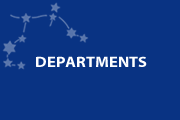- HOME
- DEPARTMENTS
- Faculty of Sociology
Faculty of Sociology

Developing the next generation of leaders who do not just “research” society, they also “change” it
Sociology is a field of study that researches social phenomena and social problems to improve our understanding of their structure and nature. The Faculty of Sociology provides education in specialized areas in the Department of Sociology and the Department of Sports Sociology and Health Sciences . This faculty emphasizes undergraduate education that specializes in sociological studies to enable students to develop leadership skills that will provide them with the capacity to change the society. The Faculty of Sociology cultivates individuals who are aware of the problems the society faces and who can actively collaborate with others on new ideas to solve these issues and who are in demand in every field.
Properly learning the theory of sociology in “introductory education”
In Introduction to Sociology and Introductory Seminar that have small class sizes, students cover the foundations of sociology while gaining an understanding of how to learn in a university setting. In various Problems of Contemporary Society, students have the opportunity to widen their interests in the society by learning about the latest social problems from full-time staff members and others who are active on the frontline of social research.
Developing the leadership skills demanded by society
In addition to offering courses about society, the faculty has established “leadership courses.” During these courses, classes are offered by community leaders who are invited as guests, and the students gain practical knowledge about diverse leadership styles and skills and their implementation. They are encouraged to consider their future path and the skills they will require in their specialization in sociology, as well to reflect upon their career choices focused on social change.
“Project seminars” that take on the challenge of solving real problems
These seminars provide an opportunity for students to demonstrate their understanding of sociology, their extensive education, and their leadership skills. Project seminars involve people from a variety of departments in a collaborative effort to solve real social problems. These seminars cultivate the abilities needed to change society. This is accomplished by having each student choose one field out of six that are concerned with Japan or foreign countries and making focused efforts to investigate the issues in this field over the course of several years.
The Department of Sociology
Looking at modern society from three perspectives in order to reform the society
During the second year, students attend one of the following courses: the Regional Social Development course, the Human Social Development course, and the Social Media Development course. The students cultivate a deep understanding of modern society while they ascertain their future paths.
The Regional Social Development Course
The students learn about regional history, economy, industry, and tourism. In addition, they think about regional connections to the wider world and investigate methods for solving regional problems in a multifaceted manner.
The Human Social Development Course
Students learn to appreciate the new possibilities offered by the diverse relationships between people and modern society from a wide variety of viewpoints, such as the family, gender, education, psychology, and work environment.
The Social Media Development Course
The students investigate how social trends and the immutable nature of media together have the ability to mobilize people into changing the society through messages conveyed by television, the internet, advertisements, and comics.
The Department of Sports Sociology and Health Sciences
Exploring the value of sports and endeavoring to create a healthy and active society.
This department offers a balance of natural and social sciences; it also offers an education that creates extensive options for the future. It has highly sophisticated facilities for experiments and practical hands-on learning that are needed to scientifically investigate sports and health.






